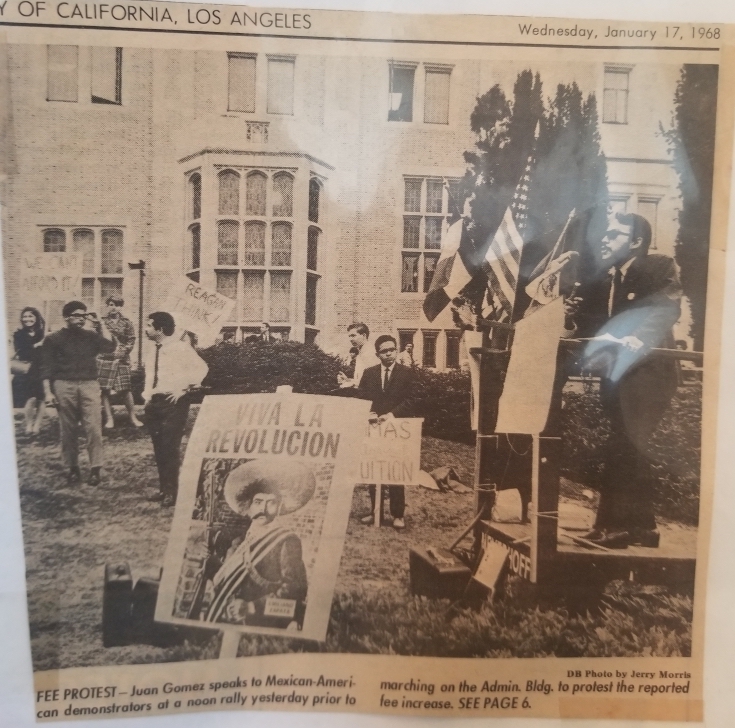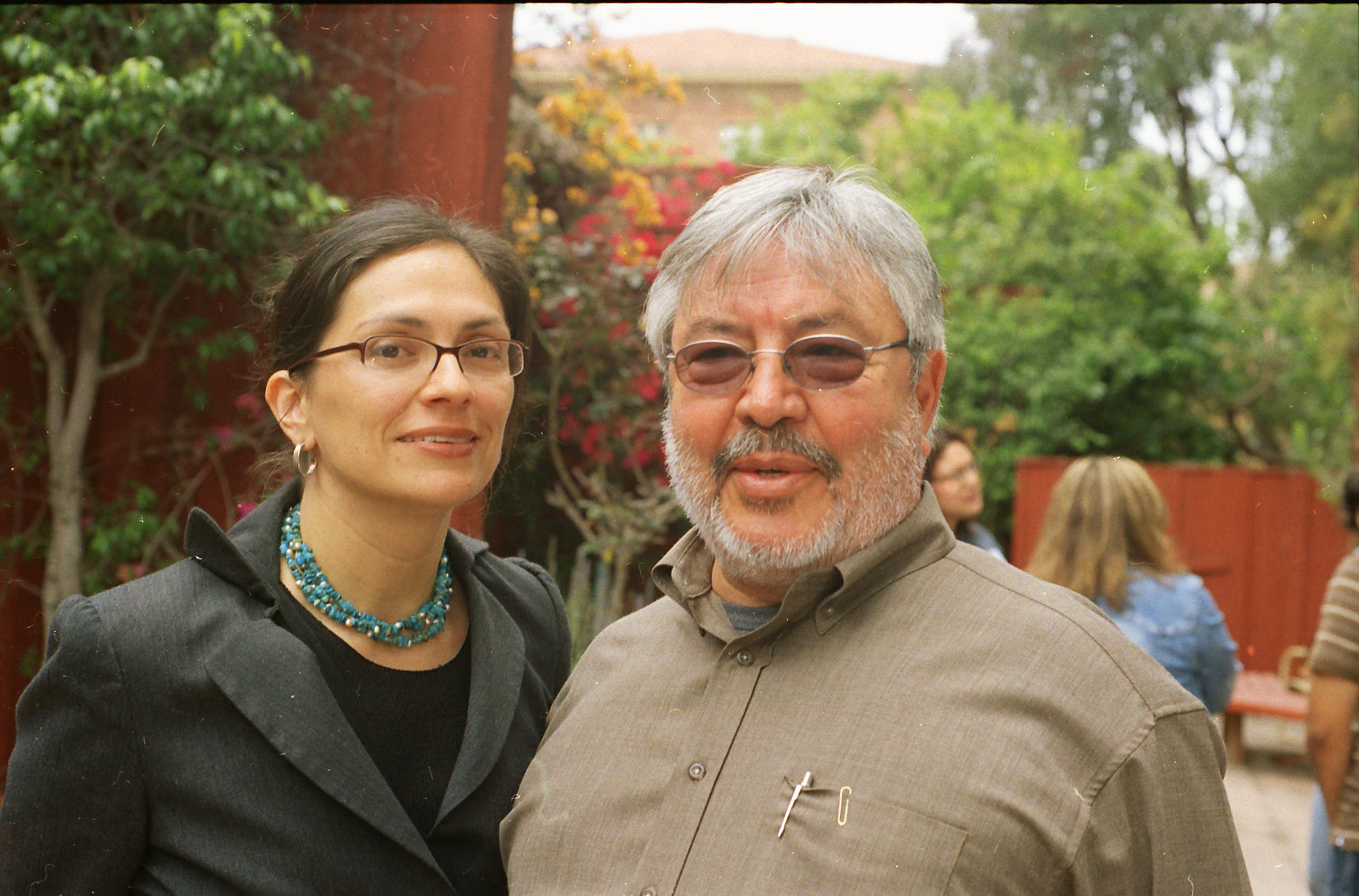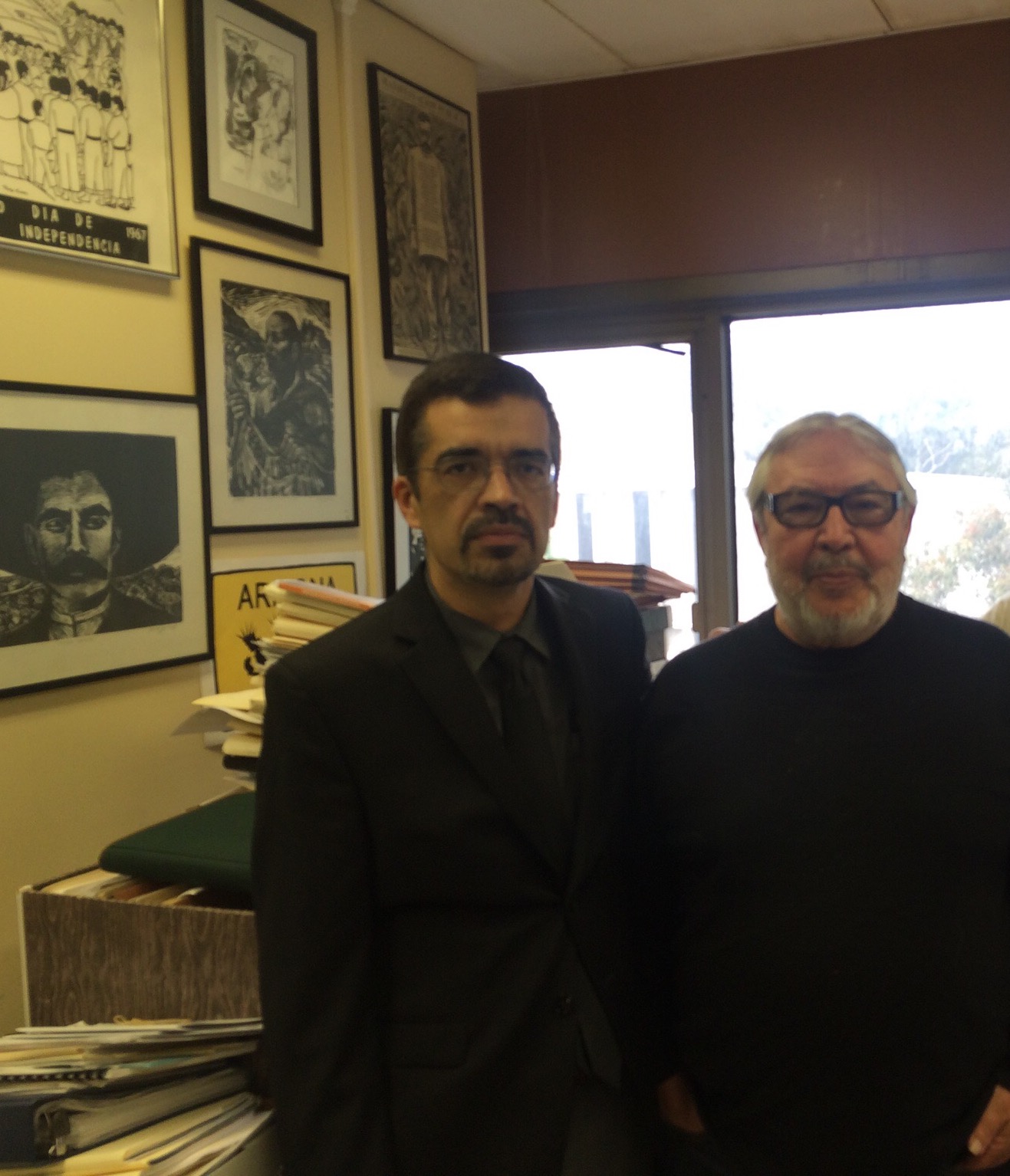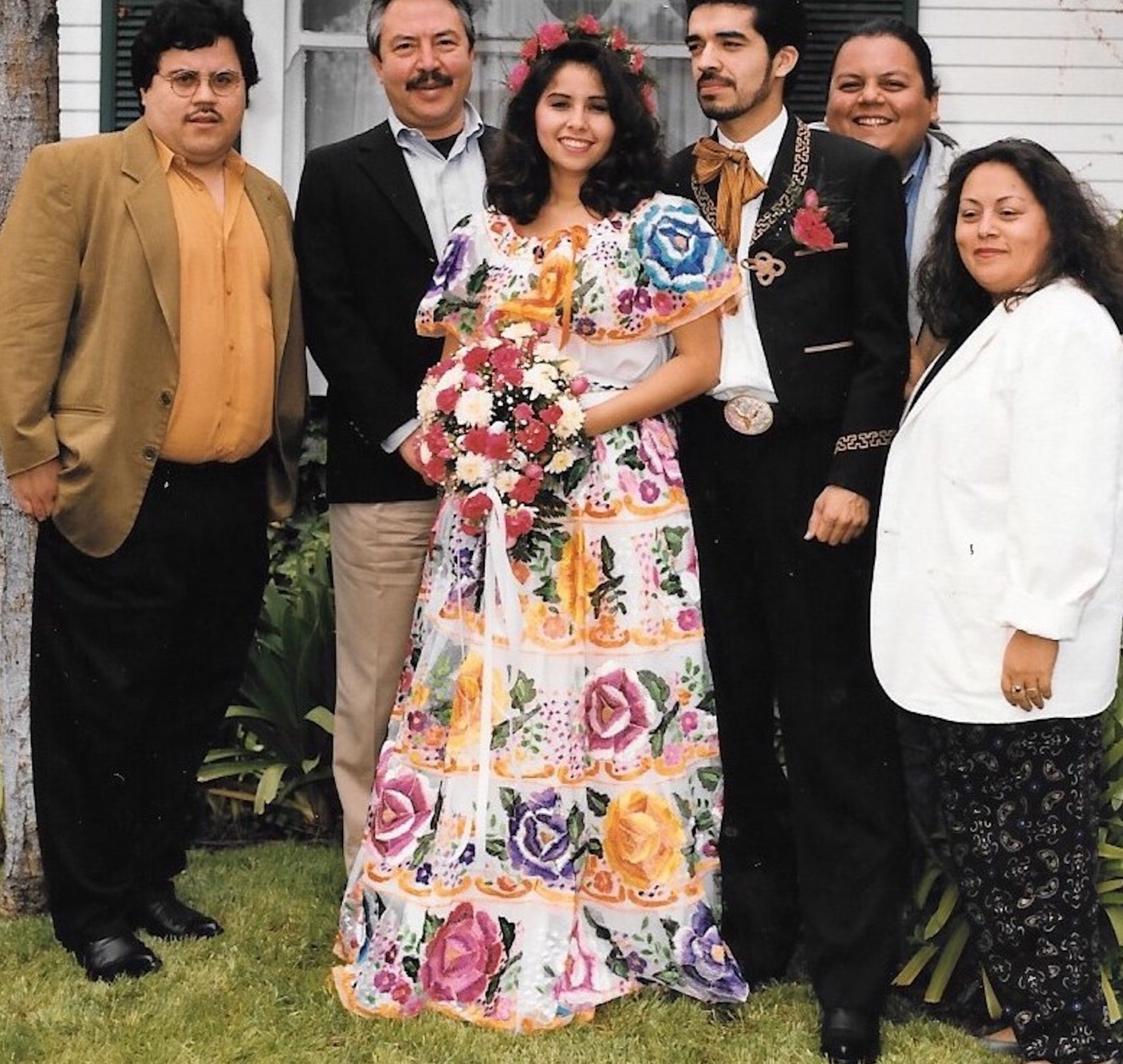“Anti-Mexicanism is a form of nativism practiced by colonialists and their inheritors.”
Dr. Juan Gómez-Quiñones (2017)
Tuesday, November 11, 2020 marks one of the saddest days of my life.
On that day, we —the Mexican people on both sides of la frontera and our allies— lost a legend: the one and only, Dr. Juan Gómez-Quiñones (JGQ).
We lost one of the greatest intellectuals not only in the Americas, but also the world. The fact that JGQ was born a Mexican in el sur (Parral, Chihuahua, Mexico) and died a proud Mexican/Chicano in el norte (Los Angeles, California) at a time when the Mexican continues to be otherized, marginalized and pejoratized serves as a grim reminder of this great loss for la raza.
For over 50 years, JGQ dedicated his life to uplift the people of the sun through his superior scholarship, dedicated mentorship, political actions and eloquent words. While his contributions are many, for the sake of space, here are a few: wrote classic books and articles on Chicana/o history, labor, politics and culture; helped establish the theoretical foundations of Chicana and Chicano studies —along with the living legend, Rodolfo “Rudy” Acuña— whom JGQ fondly admired; taught and mentored thousands of students who became leaders in their own right; supported and participated in countless political actions for social, economic and racial justice; lead co-author of El Plan de Santa Bárbara: A Chicano Plan for Higher Education; co-founded UCLA’s Chicano Studies Research Center (CSRC); co-founded CSRC’s Aztlán: A Journal of Chicano Studies; NACCS (National Association of Chicana and Chicano Studies) Scholar Recipient, 1990; wrote poetry and eloquent prose; etc.


Juan Gómez-Quiñones speaking as a graduate student and member of the United Mexican American Students (UMAS) at UCLA; UCLA Daily Bruin, front page (1968)
“My father’s land / is crossed / ribbon like / by stone fences / the wither in the sun / White stones that glisten in the sun, / Stones that ballast a sea of brown hills. / My father whip laid them, / My mother’s tribe fed them.” —Dr. Juan Gómez-Quiñones, 5th and GRANDE VISTA (Poems, 1960-1973), Colección Mensaje, New York, 1973, p. 61.
One word: brilliant!
Like in the case of another brilliant Mexican in el norte, Gloria Anzaldúa, JGQ provided us with a powerful voice against a racist American system that has attempted (and failed) to erase our history. JGQ took the ashes of our once burnt history and created scholarly books, peer-reviewed articles, essays and eloquent poems in spaces limited to the best and the brightest Western civilization has to offer. He has done so —and continues to do so— through his publications, speeches and memories without succumbing to fear or forgetting where he came from.
“Witness or, more particularly, the witness frames the process of social movements for change beyond a generational approach by emphasizing actors, motives, and actions in relation to a specific goals or enterprise. To witness means to know and to provide evidence.” —Dr. Juan Gómez-Quiñones (2020)
As I reflect on JGQ, there are no words that I can conjure to heal the immense pain that I’m feeling. I cried when I first heard the terrible news on Tuesday morning and have been struggling to maintain my East Los Angeles composure ever since. I think I lost my street cred! I’m sad because I won’t be getting random calls from JGQ at odd hours when he has something on his mind. I’m said because I won’t be receiving mail packets of his latest manuscripts for me to review or help get published.
“No worries,” Juan, “I’ll make sure that the last two manuscripts you sent me will see the light of day!”
Given all that he has done for me, I’ve always heeded his friendly and warm requests. That’s what familia is all about.
I first met JGQ in 1985, when I started UCLA as a freshman, majoring in mathematics, from East Los Angeles—a place where JGQ also hails from. I must say that I was originally shocked to see a Chicano professor at an elite university. Since most of my K-12 teachers were white, I never knew that Chicana/o professors even existed. I was equally shocked when JGQ assigned us books written by Brown scholars. Many moons later, I’m following the example of the great Chicana and Chicano authors that I read in JGQ’s classes, especially his fine works.
Speaking of historians, I’ve always wondered why history professors assign at least five to six books (200+ pages per book without pictures!) to read in a quarter or semester? I only read one book— John Steinbeck’s The Pearl—throughout my dysfunctional K-12 education. While JGQ practiced this norm, he made it clear to us that the study of history represents a serious subject. When he walked around North Campus at UCLA, he was always carrying several books on one hand and numerous student papers to grade on his other hand.


Dr. Irene Vásquez and Dr. Juan Gómez-Quiñones (circa 2006)
Constantly thinking, reading and writing, he was oblivious and impervious of his surroundings. One day for instance, while taking a small seminar on historiography with JGQ, I —along with my classmates— waited for him to teach and lead us in discussion/dialogue for about 30 minutes after class started. We then formed a posse to rescue him from his office, where we found him in a deep state of writing.
As I’ve said before, while JGQ was stoic, like my late Mexican father, once you scratched beneath the surface, he was a sweet and caring teddy bear. That said, during my initial encounters with JGQ, I was intimidated. Over 30 years later, I can still recall knocking on his office door on the sixth floor of Bunche Hall, where he would gruffly say, “Yes!”


Dr. Álvaro Huerta and Dr. Juan Gómez-Quiñones (circa 2015)
My response? “Hello, Mr. Quiñones… I mean, Professor Quiñones, I want to talk to you about my paper. I’ve never written a 10-page paper and don’t know how to start.”
Once I got to know him, I learned to announce myself. “Hello, Quiñones, this is Álvaro. I need to ask you some questions about the readings.” Often, I would go with my fellow student activists or MEChistas, where we minored in “JGQ Studies,” just to hang out and talk about politics or sports. He wasn’t fond of small talk or chisme. Also, he rarely talked about himself or how he grew up, especially as one of the few Chicanas/os to pursue higher education when he first entered the university. He never took credit for all of his accomplishments. Instead, he would always credit the collective efforts of the committed educators, youth, activists and other agents of social change throughout the Chicana/o movement and beyond.
In terms of MEChA (Movimiento Estudiantil Chicana/o de Aztlán) at UCLA during the mid-1980s, whenever we organized a protest on campus or in the community, we could always count on JGQ for his unconditional support. For instance, when we organized a hunger strike at UCLA —one of the first, if not the first at UCLA and at any UC campus— in defense of undocumented immigrants (November 11-19, 1987), we knew that JGQ had our back. When we didn’t show up to class, he didn’t scold or hector us. He encouraged us, teaching us a key lesson that I pass on to my students and colleagues: knowledge comes from practice.
Later, as former UCLA students, we became community activists and organized Latino gardeners against the City of Los Angeles’s draconian leaf blower ban during the mid-1990s. (City penalties for Latino gardeners caught with using a leaf blower? Misdemeanor charge, $1,000 fine and up to 6 months in jail). To challenge this racist law, we sought help from JGQ to lobby council members —like Mark Ridley Thomas, Jackie Goldberg and others— who voted for the ban on December 3, 1996.
On a more personal level, when I got married to Antonia Montes —fellow MEChista, educator, activist— in 1992, I invited JGQ. To my surprise, he showed up. Since then, we became homeboys (and later colleagues), where he counseled me throughout my graduate studies at UCLA and UC Berkeley. He supported me without reservations when I was on the academic job market. Whenever I experienced racial micro-aggressions or academic hazing or pinche bullying, I never flinched since I knew that I could count on my academic homeboy, JGQ, like in the case of the late Dr. Leo Estrada.


Left to Right: Adrián Álvarez, Juan Gómez-Quiñones, Antonia Montes, Álvaro Huerta, Ruben Lizardo and Leonor Lizardo; wedding of Antonia and Álvaro (March 28, 1992)
In short, JGQ was/is my professor, mentor, homeboy, fellow-activist and colleague. He taught me/us that we, as Chicanas and Chicanos, also have history—a proud history that must be taught in K-12, higher education and our communities.
“The point of learning about Indigenous past is not to relive past practices, or to propose one essentialization over another, or to be immobilized by history. The first stone to demolish the old presidio is our own consciousness.” —Dr. Juan Gómez-Quiñones, Indigenous Quotient/Stalking Words: American Indian History as Future, Aztlan Libre Press, San Antonio, Texas, 2012, p. 39.
Despite our generational divide, we shared many similarities: Mexican roots; native sons of East Los Angeles; doctorates from the University of California; veteran activists; practitioners of respect and confianza (something absent in the academy); lovers of music (e.g., oldies), art (e.g., Mexican/Chicana/o art), food (anything Mexican), drink (e.g., mezcal), culture (our own) and sports (e.g., boxing); readers of poetry; educators and mentors; and, our defense of the otherized, racialized and pejoratized…
“Human issues can be resolved with humanistic solutions. Immigrants are not strangers; they are family.” —Dr. Juan Gómez-Quiñones (2013, foreword, p. 14)
Moving forward, while I’ll humbly do my part to maintain and expand his legacy through my lectures, writings and musings, etc., I only wish that I was able to tell him in person four magic words before his passing: “I love you, Juan!”
¡Viva JGQ!
***
Dr. Álvaro Huerta is an Associate Professor in Urban & Regional Planning and Ethnic & Women’s Studies at California State Polytechnic University. Among other scholarly publications, he’s the author of Reframing the Latino Immigration Debate: Towards a Humanistic Paradigm and Defending Latina/o Immigrant Communities: The Xenophobic Era of Trump and Beyond. He holds a Ph.D. in city and regional planning from the University of California, Berkeley, and an M.A. in urban planning and a B.A. in history from the University of California, Los Angeles.


